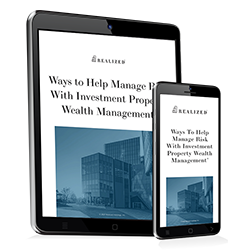Page 3 21 - 30 of 142
What is an Interest Rate Cap and How Does it Work?

For investors, interest rates can make a significant difference in whether a specific project is attractive or not. As interest rates rise, the margin for profit may shrink, requiring the investor to approach with caution. In some cases, a variable or adjustable interest rate can offer a tool to increase the deal’s feasibility. The reason for this boost is that the initial rate is lower than the investor can obtain for a long-term fixed-rate loan.
How to Calculate Cap Rate

If you’re involved with any kind of real estate investment or holdings, you’ve no doubt heard the term “capitalization rate,” or its shorter version of “cap rate.” Cap rates are used by real estate investors, owners, and others involved in the industry because it helps them understand the relationship between a property’s value, and the net operating income it generates. Let’s unpack these terms, and then learn about the cap rate formula.
What is an Example of Risk Management?

The Oxford Language Dictionary defines risk management as “the forecasting and evaluation of financial risks together with the identification of procedures to avoid or minimize their impact." That makes sense; investors routinely incorporate risk management into their decision-making process. Part of the task involves determining how much risk is acceptable (risk tolerance) since some people are willing to risk more in pursuit of a greater potential reward.
What is a Cap Rate in Real Estate?

Since real estate investors don’t have crystal balls they can consult when considering which properties merit their investment capital, they turn to cap rates instead.
How to Use Risk to Manage Real Estate Investments

This article was written by Realized Founder and CEO David Wieland and originally appeared on MarketWatch. You can find the full article here. In our experience, real estate investment properties aren’t typically managed with the same discipline as traditional asset classes. Generally accepted and standardized measures of traditional asset risks don’t exist in real estate, and there is no framework for evaluating real estate risk. However, there are risk attributes with which you should familiarize yourself.
What is Risk Mitigation?

Risk is an inherent aspect of investing – there’s no way to separate the uncertainty of making investment decisions from their potential to go astray and negatively affect your investment capital. Risk mitigation is about creating strategies that can potentially reduce your exposure to risk.
What Risk Factors Should I Consider When Retiring?

Retirement comes with a host of things to consider, the least of which is whether you should take up pickleball. For many seniors, making their money last is an overarching concern. There are a handful of risk factors that could jeopardize your retirement nest egg, including inflation, market volatility, how long you live, how much you spend, and the state of your health as you journey into your Golden Years.
Which Investment Type Typically Carries the Least Risk?

The tradeoff between investment risk and reward (or potential return) is one that every investor needs to decide individually. That balance will likely change depending on the investor’s goals, circumstances, and age. But many investors seek a balance between risk and reward by hedging their portfolio allocation according to their risk appetite. For example, the traditional 60/40 portfolio consists of sixty percent equities and forty percent fixed-income instruments, like bonds. The stocks typically offer a more significant opportunity for growth but carry the risk of loss. In contrast, the bonds provide a smaller potential value increase and often less volatility. In theory, the stocks offer growth over the long term, while the fixed income holdings provide a hedge to help manage exposure to periodic value drops.
How Can I Manage Inflation Risk?

Unless you’ve been stationed in Antarctica or the International Space Station these past 12 or so months, you’ve likely noticed huge increases in the cost of just about everything, from gasoline to groceries to goods and services.
What is Macroeconomic Risk?

We’ve said it before, and we’ve said it often: There is no such thing as risk-free investing. Certainly, there are varying degrees of risk when investing. But all investments carry risks including (but not limited to) capital, default, currency, inflation, and interest rate risks.
Page 3 21 - 30 of 142


